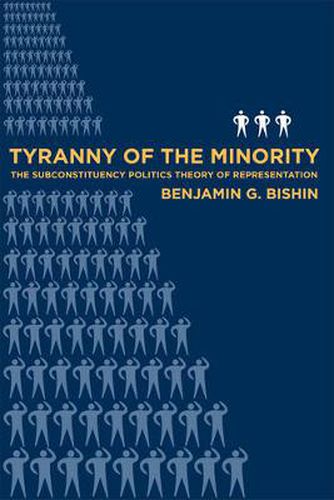Readings Newsletter
Become a Readings Member to make your shopping experience even easier.
Sign in or sign up for free!
You’re not far away from qualifying for FREE standard shipping within Australia
You’ve qualified for FREE standard shipping within Australia
The cart is loading…






Why do politicians frequently heed the preferences of small groups of citizens over those of the general public? Breaking new theoretical ground, Benjamin Bishin explains how the desires of small groups, which he calls asubconstituencies,a often trump the preferences of much larger groups. Tyranny of the Minority provides a aunified theory of representation,a based in social psychology and supported by extensive analyses of legislatorsa voting behavior, that explains how citizensa knowledge and participation affects candidatesa behaviour in campaigns and legislatorsa behaviour in Congress. Demonstrating the wide applicability of the theory, the book traces politiciansa behavior on a wide range of issues, including the Cuban trade embargo, the extension of hate crimes legislation to protect gays and lesbians, the renewal of the assault weapons ban, abortion politics, and Congressas battle to recognize the Armenian genocide. It offers a unique explanation of why and how special interests dominate American national politics.
$9.00 standard shipping within Australia
FREE standard shipping within Australia for orders over $100.00
Express & International shipping calculated at checkout
Why do politicians frequently heed the preferences of small groups of citizens over those of the general public? Breaking new theoretical ground, Benjamin Bishin explains how the desires of small groups, which he calls asubconstituencies,a often trump the preferences of much larger groups. Tyranny of the Minority provides a aunified theory of representation,a based in social psychology and supported by extensive analyses of legislatorsa voting behavior, that explains how citizensa knowledge and participation affects candidatesa behaviour in campaigns and legislatorsa behaviour in Congress. Demonstrating the wide applicability of the theory, the book traces politiciansa behavior on a wide range of issues, including the Cuban trade embargo, the extension of hate crimes legislation to protect gays and lesbians, the renewal of the assault weapons ban, abortion politics, and Congressas battle to recognize the Armenian genocide. It offers a unique explanation of why and how special interests dominate American national politics.